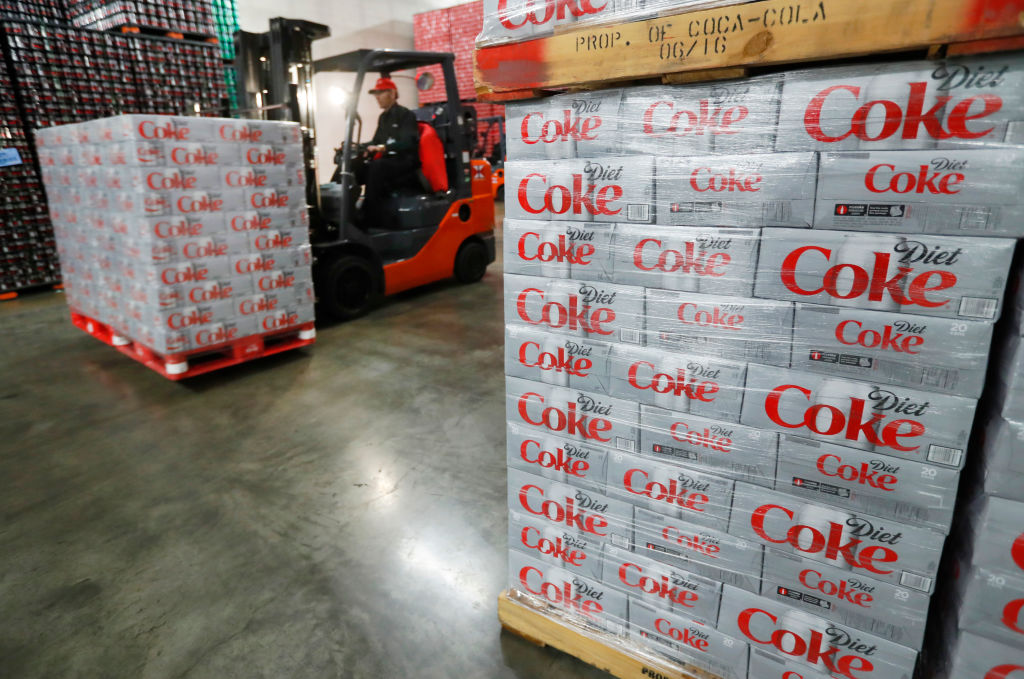Bad news for folks trying to lose weight by drinking diet sodas: A recently published study indicates the lower-calorie alternatives to the popular sugary beverages may be doing more harm than good.
Diet drinks containing sucralose may increase food cravings and appetite in women and people who are obese, according to a University of Southern California study as reported by NPR.
A study published last week in the Journal of the American Medical Association is but the latest evidence that sucralose — a no-calorie artificial sweetener often used in diet soft drinks — may stimulate the appetite in some people.
In the study, 74 people were asked to drink 300 milliliters of fluid sweetened with either table sugar, sucralose or water — which served as a control — on three different occasions.
In the two hours that followed, magnetic resonance imaging checked how brain regions involved in appetite and food cravings reacted when participants were shown pictures of unhealthy cuisine.
How much study participants ate at a buffet was also tracked.
“Blood was sampled at baseline and 10, 35, and 120 minutes after participants received a drink containing sucrose, sucralose, or water to measure plasma glucose, insulin, glucagon-like peptide (7-36), acyl-ghrelin, total peptide YY, and leptin,” the group said in the study’s abstract. “Participants were then presented with an ad libitum meal. Participants were right-handed, nonsmokers, weight-stable for at least 3 months before the study visits, nondieters, not taking medication, and with no history of eating disorders, illicit drug use, or medical diagnoses.”
“We found that females and people with obesity had greater brain reward activity,” after ingesting sucralose, said study author Dr. Kathleen Page, an associate professor at the university’s Keck School of Medicine in Los Angeles.
Per the study, obese women had a reduction in the hormone that suppresses appetite and ate more food at a snack buffet after consuming sucralose-containing drinks as compared to regular soda containing real sugar.
But men considered to be of a healthy weight who also drank the sucralose-infused beverage did not eat more food at the snack buffet.
“I think what was most surprising was the impact of body weight and biological sex,” Page said. “They were very important factors in the way that the brain responded to the artificial sweetener.”
The study suggests artificial sweeteners may in effect be tricking the body into thinking it’s getting sugar that never arrives, at least in certain population groups.
“These results are consistent with patterns that we’ve actually seen in my lab in [animal] studies,” said Susan Swithers, a behavioral scientist at Purdue University who was not associated with the study but reviewed its findings.
She went on to explain: “You are supposed to get sugar after something tastes sweet. Your body has been conditioned to that.”
That the sugar never arrives, Swithers noted, could ultimately end up disrupting the body’s ability to metabolize sugar that’s consumed in the future.
This leads to the possibility that “when you get the sweet taste without the sugar, that changes how you respond to sugar the next time because you don’t know whether it’s coming or not,” Swithers said.
Swithers’ lab has documented animals with a history of getting artificial sweeteners responding to real sugar with higher blood sugar levels than animals not fed artificial sweeteners.
“It’s a small effect, but over time this could contribute to potentially significant consequences,” Swithers said.
Based on these findings, Laura Schmidt, a professor of health policy at the University of California, San Francisco, has some advice for diet soda-drinkers trying to lose weight: “People with obesity might want to completely avoid diet sodas for a couple of weeks to see if this helps to reduce cravings for high-calorie foods.”
This article appeared originally on The Western Journal.
























